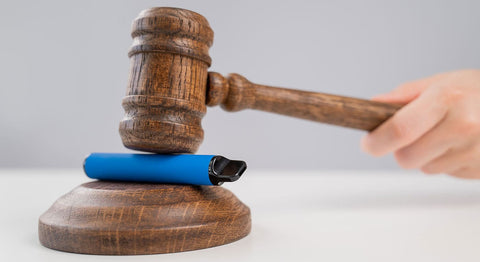Introduction
You may already be aware of the negatives that smoking cigarettes has when it comes to dental health, but you may have questions when it comes to vaping and oral hygiene. Although vaping has been around for many years, there's still many areas of impact that vaping may have on your teeth and gums.
In this article we look at the most common questions you may have when it comes to vaping and your dental health. With insight from leading dentists and health care professionals, this article will provide you with non-biased facts so you can make your own informed decision when it comes to your oral health and vaping.
Summary: Although not a leading cause of tooth damage, vaping should be paired alongside good oral hygiene and routine dental visits to avoid any teeth staining, enamel damage or tooth loss. After a tooth extraction, avoid vaping for at least 72 hours, but always take guidance given by dental professionals. Dentists may suspect that you vape, and it's advisable to be open and honest with them to ensure you receive the best care possible.
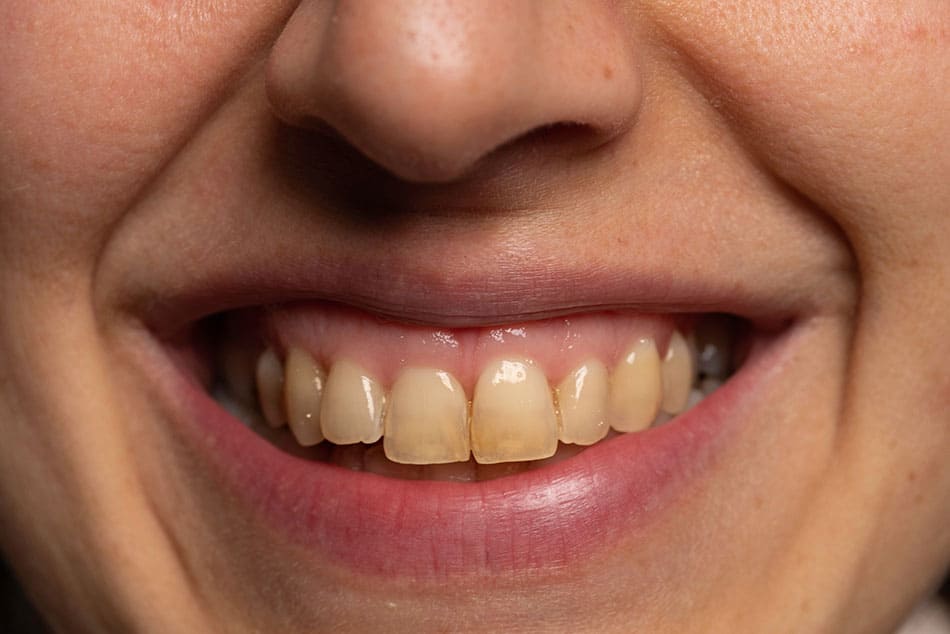
Does vaping stain teeth?
Like cigarettes, vape products can contain nicotine which has been linked to the staining of teeth. Although there is evidence that vaping e-liquid containing nicotine can discolour teeth in a similar way to cigarettes, research carried out by the British American Tobacco (BAT), highlighted that electronic cigarettes cause significantly less staining to teeth than conventional cigarettes.
Bupa also highlight that the impact of smoking cigarettes is well understood, with the ingredients such as tar, alongside nicotine resulting in teeth staining. When it comes to vaping, they state that "vaping removes the presence of tar from the equation", however artificial flavourings in e-liquid can trap stains in the tooth enamel.
Although the risk of staining teeth with vaping could be seen as lower than smoking cigarettes, it's still important to maintain good oral hygiene, such as brushing your teeth regularly and limiting food and drink known to cause teeth staining, such as sugary drinks, tea or coffee and berries.
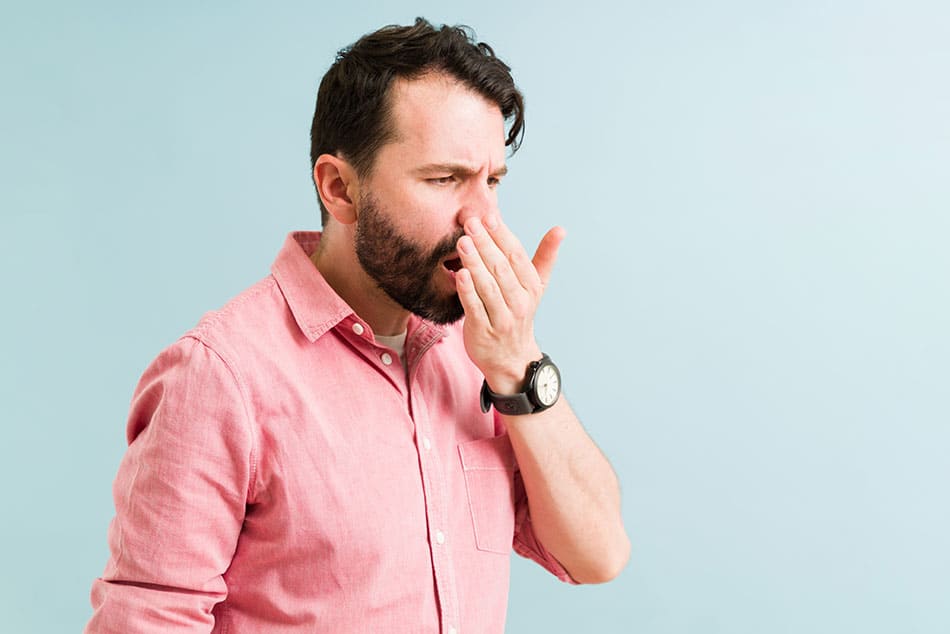
Does vaping cause bad breath?
Although not directly related, one of the most common oral side effects to vaping is a dry mouth. One of leading causes of this is due to the ingredient propylene glycol, often shortened to PG. This ingredient is a colourless liquid that provides a subtly sweet taste and acts as a major ingredient within e-liquids.
Used in many consumable items, including the production of food, and a carrier for pharmaceutical products, PG is also a key ingredient within e-liquids and liquid nicotine. If you're vaping frequently, especially with an e-liquid containing a higher PG ratio, we advise staying hydrated, alongside good oral hygiene to protect your teeth and to avoid bad breath.
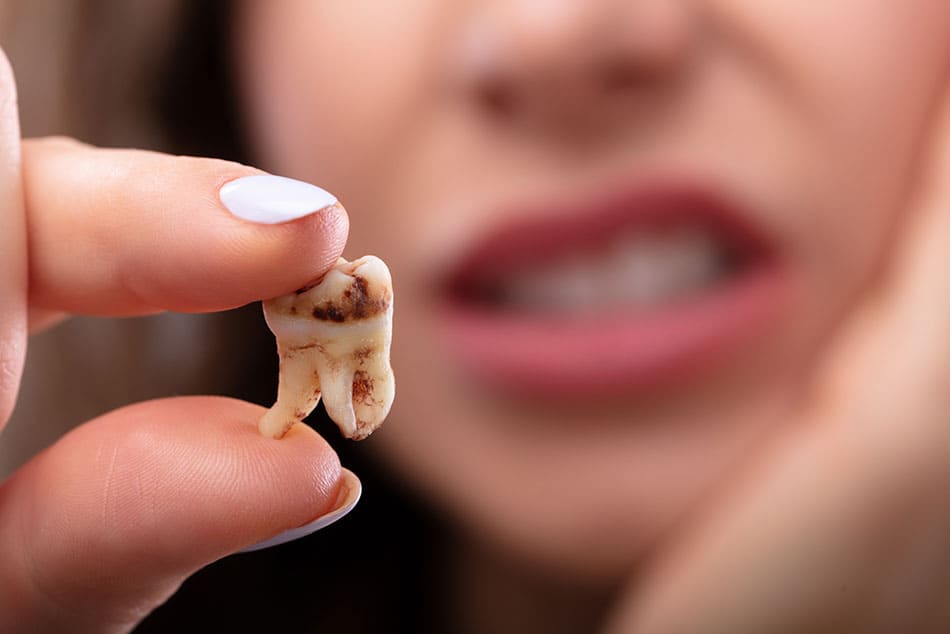
Can vaping cause tooth decay?
According to the National Health Service (NHS), the leading causes of tooth decay are consumption of sugary food and drink, and not cleaning your teeth and gums. The core reasoning behind tooth decay is due to bacteria that sticks to your teeth, which then creates a layer plaque. Over time, this plaque damages the enamel of your teeth over time which can then lead to tooth decay.
When vaping electronic cigarettes, your teeth and gums are the first thing to come into contact with the vapour from e-liquid. According to David Frank, DMD, owner and founder of Walden Dental;
"Vaping can cause your mouth and gums to dry out, resulting in dry mouth, when your mouth is dry, you are at a high risk for tooth decay and gum disease"
If you do vape regularly, it's even more important to stay hydrated to mimise the risk of tooth decay. By staying hydrated, not only will you will reduce the chances tooth decay, you will also lower the risk of gum disease. In addition, Healthline highlight the importance and benefits of drinking enough water:
"Staying hydrated is one of the best things you can do for your overall health. Staying hydrated can help support physical performance, prevent headaches and constipation, and more."
If you are worried about any impact on your teeth or gums, or feel that you are not hydrating enough, we always advise speaking to healthcare professionals to ensure you gain the best health advice.
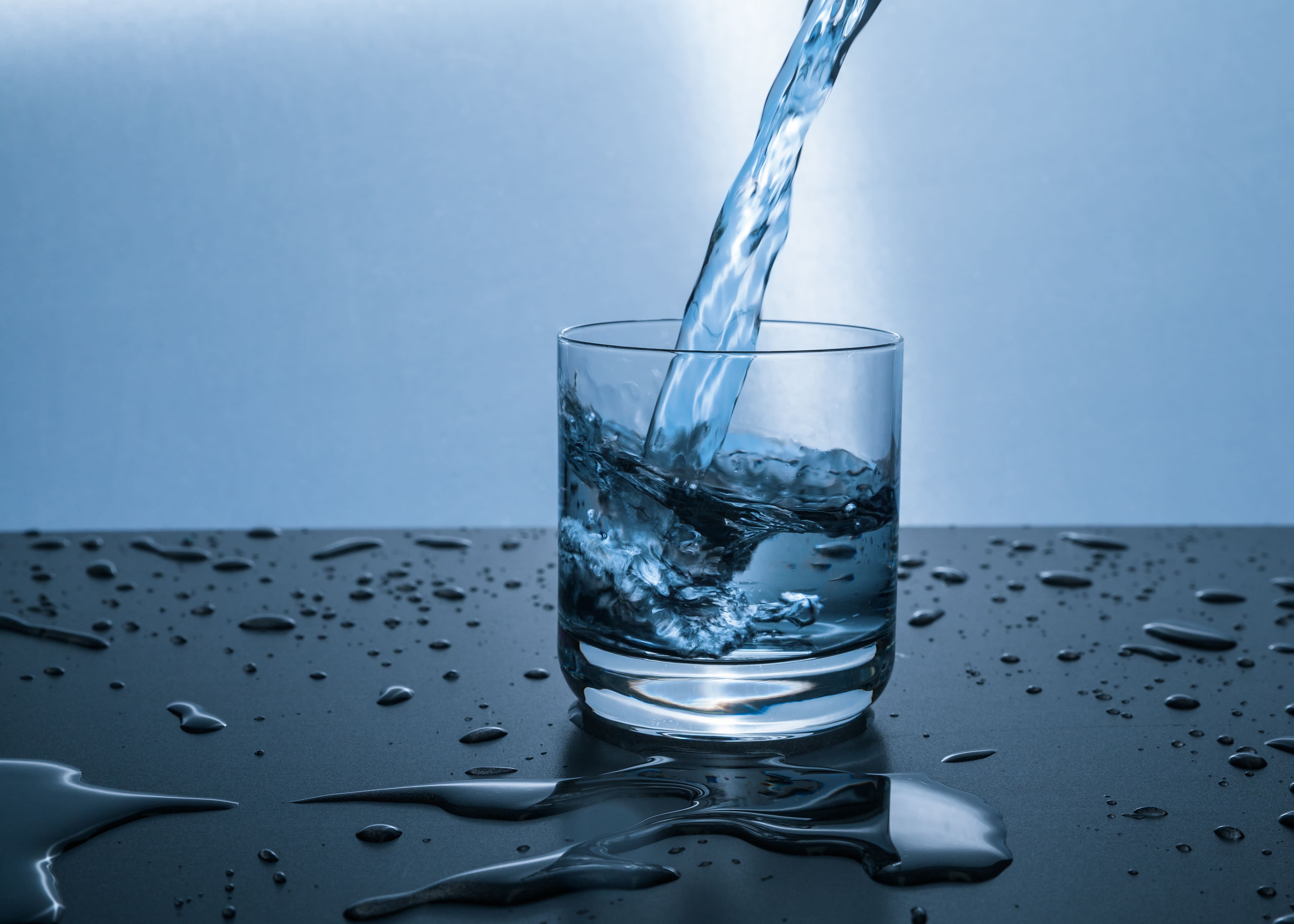
How much water do I need to stay hydrated?
Hydration plays a vital role in protecting your teeth and gums, alongside your overall health. Ensuring that you dink enough water throughout the day to stay hydrated is important for your body to carry out the basic needs, alongside protecting your teeth and gums.
As previously highlighted, vaping can increase the chances of dehydration which makes it even more important to maintain fluid intake. Bupa highlight "as a basic guide, most adults need about 1.5 to 2 litres of fluid a day. Children need less and pregnant women need a little more."
The quickest way to test how well hydrated you are is by checking your urine. A lighter yellow and more transparent urine means you are better hydrated, whereas the darker and more orange it is, the higher levels of dehydration you may have. Bupa address that it's important to keep check of your urine colour throughout the day, they highlight:
"If you’re drinking enough, your pee should be pale yellow. If you don’t need to go as often as usual, you only pass a small amount each time and it's dark in colour, it’s likely that you’re dehydrated."
If you are still unsure, the urine colour chart below is a great indication to match and compare to ensure you are hydrated enough. Remember that not only is hydration great for your teeth and gums, it also plays a vital role in your overall health.
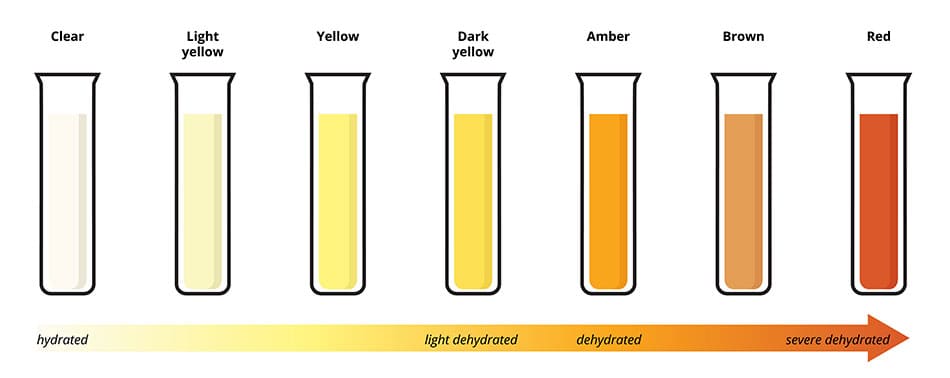
How do I prevent tooth decay?
There are many ways highlighted by healthcare professionals to mimise the risk of tooth decay. It's strongly advised to work alongside your dentist, hygienist or orthodontist to ensure you are doing everything possible to maintain good oral care and limit the chance of tooth decay. As a reference, the NHS highlight the following best practices for preventing tooth decay:
- Brush your teeth at least twice a day with toothpaste to remove plaque
- Clean in between your teeth every day using dental floss or interdental brushes
- Use sugar-free medicines and avoid high levels of sugar in food and drink
- Have regular dental check-ups dependent on your need
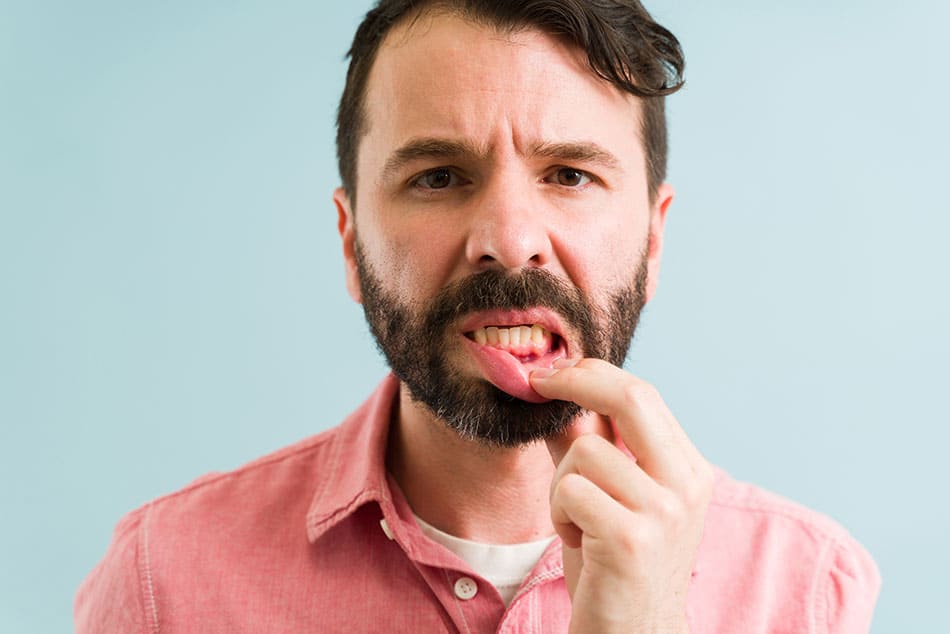
Can vaping cause gum disease?
According to the American Heart Association, nicotine in general, regardless if vaped or smoked can restrict blood flow to the gums, which in turn can increase the risk of gum disease. In addition, the impact of vaping can create a dry mouth as previously discussed which can also lead to gum disease if not addressed.
Although not a leading causes of gum disease, vaping has the potential to create issues with your gums if oral hygiene is not maintained, or you find yourself dehydrated often. Its always advisable to maintain contact with a dentist with routine dental appointments to prevent complications with your teeth and gums, and always stay as hydrated as possible.
How do I prevent gum disease?
Simular to tooth decay, gum disease is caused by plaque build up on your teeth. The National Health Service (NHS) and the American Dental Association (ADA) highlight that if you do not remove plaque from your teeth through brushing and cleaning regularly, it will build up and begin irritating your gums.
According to NHS and ADA, they highlight the same actions to prevent gum disease as you would do with preventing tooth decay. Always ensure to maintain good oral hygiene, such as regular teeth brushing, avoiding sugary food and drink and maintaining hydration.
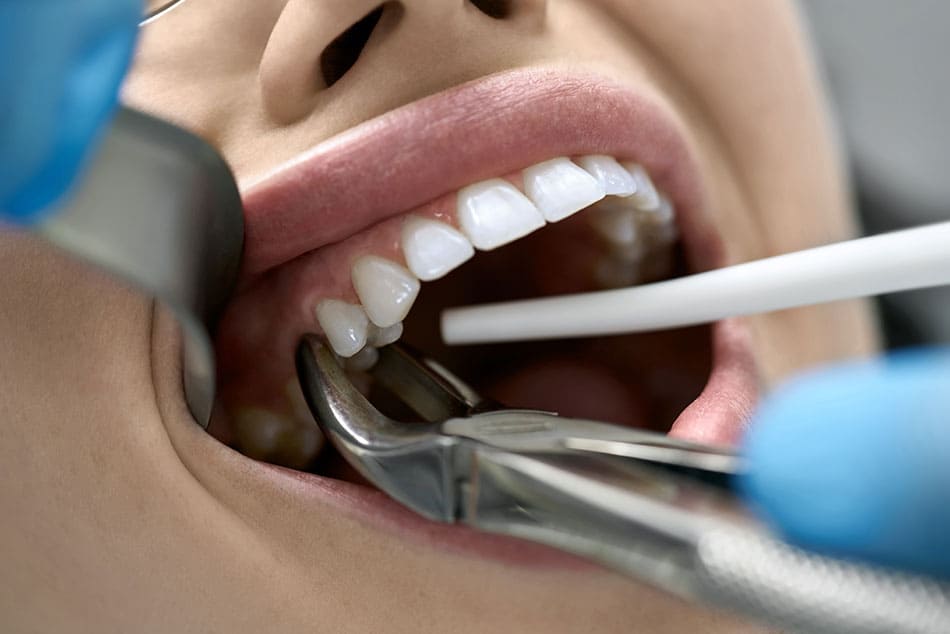
Can I vape after a tooth extraction?
Tooth extractions can be a painful process, which means its important to make the healing process as comfortable and prompt as possible. Although you may already be aware that smoking can cause issues with the healing process after a tooth extraction, you may be surprised to know that vaping can too.
Even though vaping is considered to be less harmful than smoking cigarettes, when it comes to tooth extraction aftercare, the same goes with vaping, especially if you vape nicotine as this reduces the amount of oxygen in your bloodstream and can cause inflammation.
According to Dentaly, when you smoke cigarettes, or e-liquid containing nicotine, your blood vessels will constrict, this will restrict the blood available for the healing process after your tooth is pulled. If your healing is delayed after a tooth extraction, you are at greater risk of a dry socket.
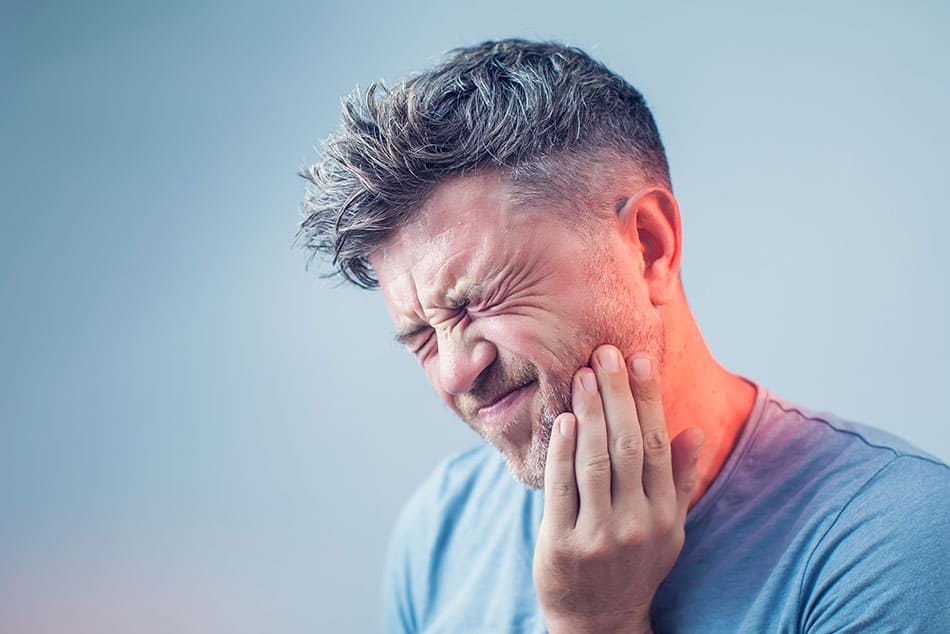
What is a dry socket?
One of the most common complications of tooth removal is a dry socket. This is where a blood clot fails to develop inside the tooth socket after extraction. A dry socket can also occur when the blood clot becomes dislodged or disappears.
A dry socket can cause anything from an aching pain, to an intense throbbing pain, or a severe toothache in many cases. The NHS highlight that It's important to do everything you can to avoid a dry socket and maintain a prompt healing process for faster recover.

How does vaping cause a dry socket?
One of the leading causes to a a dry socket is linked to the use of cigarettes, however this is also relevant with the use of electronic cigarettes. Vaping closely mimics the act of smoking cigarettes which makes the chances of a dry socket very similar.
When you draw on a vape or a cigarette, you create a negative pressure in your mouth which can create a suction that could pull the forming clot from the socket, resulting in a dry socket.

When can I vape after a tooth extraction?
Most dentists will advise to wait for at least 72 hours after a tooth extraction before smoking or vaping, that works out to three complete days. Although advisable to wait 72 hours, this is only the minimal time needed for a blood clot to form in the empty socket. Although after this time it becomes more difficult for the suctioning action of vaping to dislodge blood clots, according to Dentaly, it's always possible.
When it comes to getting teeth extracted, the healing process and procedure will differ. If you are unsure or worried about vaping after a tooth extraction, it's advised to speak to your dentist to confirm you're okay to proceed. Even if a dental checkup is required, it's always best to check to avoid any further damage.

Can I vape without getting a dry socket?
Unfortunately, there is no sure answer on preventing a dry socket if you want to continue vaping after a tooth extraction. The best advice we can provide matches that of dental experts who advice to wait 72 hours before you begin vaping again. Even though waiting for this time can limit the chance of creating a dry socket, it does not completely remove the likelihood of it happening.
If you want to vape after a tooth extraction, you should take advice directly from your dentist to ensure you receive the best guidance possible to limit any adverse side effects which could damage your oral health.
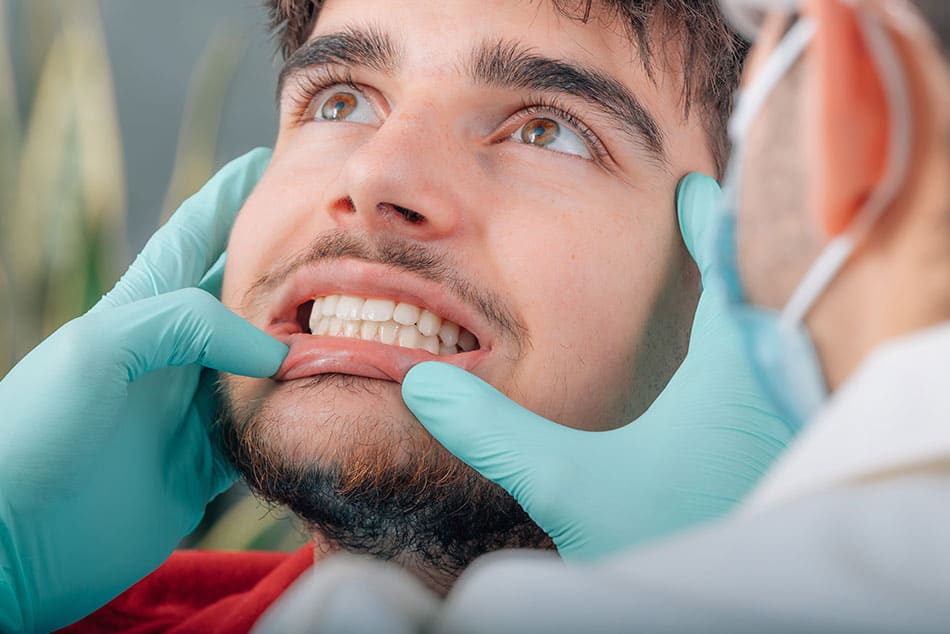
Can a dentist tell if I vape?
You may be surprised to learn that dentists, hygienists and orthodontists are able to suspect that you've been vaping electronic cigarettes, especially if you vape anything containing nicotine. Although they may only be able to suspect the fact, the most obvious signs that can appear during a check up at your dentist are nicotine stains on your teeth, plaque build-up, swollen gums, or gum recession.
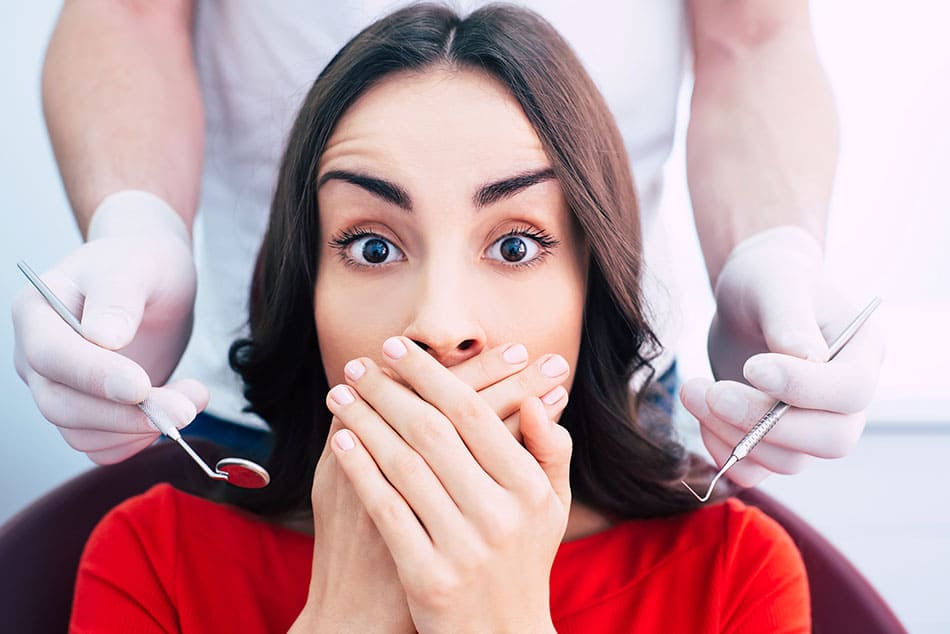
How to hide that you vape from a dentist
Much like a doctor or other healthcare professional, a dentist, hygienist or orthodontist is there to provide the best care possible for your teeth and gums. For this reason, we strongly advise not trying to hide the fact that you vape from your dentist or oral care specialist, by doing so you may not receive the best care possible when it comes to looking after your teeth.
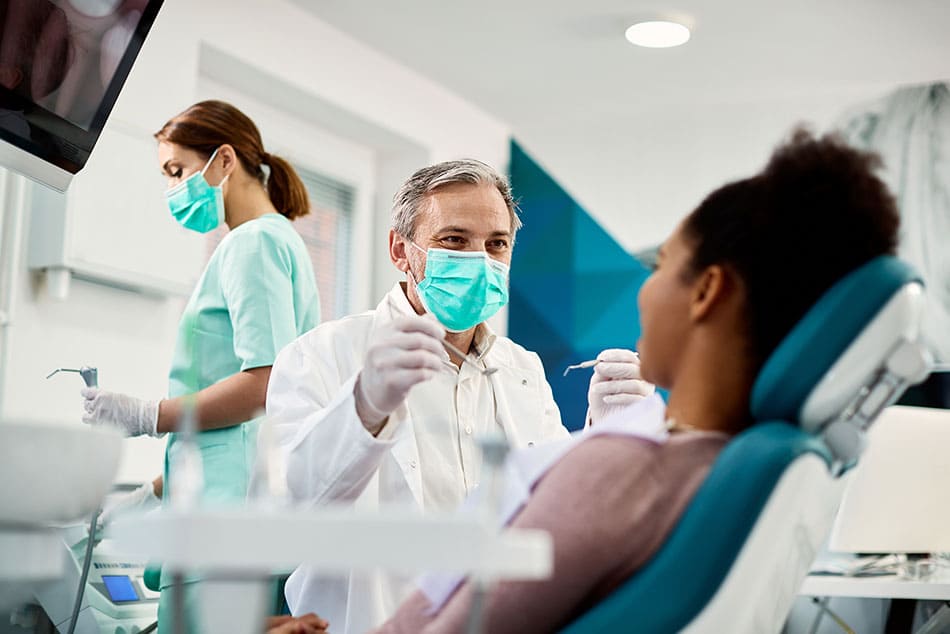
Conclusion
Although vaping may not be classed as a leading cause of tooth decay or gum disease, we strongly advised to maintain good oral hygiene, regardless if you vape or not. It's important to keep routine dental visits, combined with hygiene appointments to prevent any future issues with your teeth, whilst ensuring you minimise the risk of tooth staining, enamel damage or tooth loss.
When it comes to tooth extractions, vaping should be avoided for at least the first 72 hours after the procedure to minimise the risk of a painful dry socket forming. Although this may reduce the risk of a dry socket, it may still be possible. For this reason, always take guidance directly from your dentist for the best aftercare possible.
Although a dentist, hygienist or orthodontist may be able to suspect that you vape, they may not always be able to tell for sure. It's important to be open and honest with your dental professional to ensure that your receive the best possible care available, this will limit the chances of damaging your teeth and gums.
Frequently asked questions (FAQ)
Nicotine in vape products can discolour teeth similar to how cigarettes do so, however British American Tobacco (BAT) state that vaping creates less staining to teeth than cigarettes.
Dentists may not be able to know for certain if you vape, however they can suspect that you do by checking signs such as, nicotine stains, swollen gums or plaque build up.
Vaping increases the chance of a dry socket, especially if done so within the first 72 hours after tooth extraction, as this is the length of time for the blood clot to initially settle. It's strongly advised to avoid vaping in the first 72 hours after extraction.
Although both vaping and smoking can cause teeth staining, vaping has been highlighted by British American Tobacco to have a lesser impact than smoking. With electronic cigarettes providing nicotine without harmful chemicals such as tar and carbon monoxide, vaping could be argued to be better for your teeth than smoking.
The American Heart Association state that vaping nicotine products can increase the risk of gum disease. NHS and ADA highlights that by maintaining good oral hygiene, avoiding sugary food and drink, whilst maintaining hydration, will minimise the risk of gum disease.
According to webmd, a dry socket can create bad breath and an unpleasant smell or taste in your mouth. If you experience this after a tooth extraction, we advise contacting your dentist for further guidance.
Although vaping can cause minimal staining to teeth, it is less likely to directly stain metal braces that are created from stainless steel. If wearing clear braces, there is a greater chance of discolouring clear braces. By ensuring you clean your teeth frequently, including between braces, you will reduce the risk of stained lines on your teeth when removing braces.
It is recommended to avoid vaping when wearing teeth aligners. Because aligners such as Invisalign closely mould your teeth, vapour from vaping could coat the teeth if it gets under the aligner and cause issues. In addition, vapour created by e-liquid can discolour clear aligners and make them less transparent over time. Although it could be tempting to remove aligners to vape, if you do so you could interfere with the treatment process.
Disclaimer: The content on www.royalflushvape.co.uk offers general insights about vaping and vape related products. Please be aware that this information is not meant to be a substitute for medical advice and should only be relied upon when explicitly referenced. We make no guarantees regarding the accuracy, reliability, or health-related advantages of the content displayed across all pages of our website, including blog posts, product pages and social media content.



